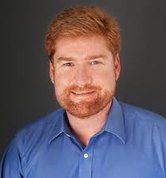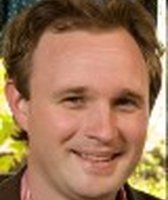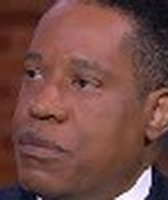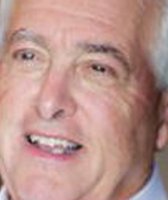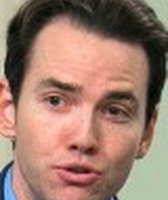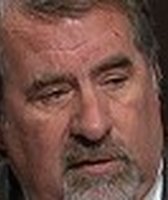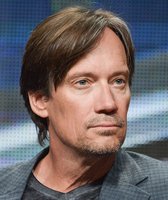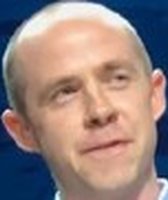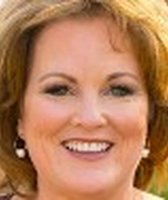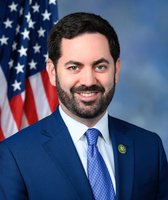Stand up for the facts!
Our only agenda is to publish the truth so you can be an informed participant in democracy.
We need your help.
I would like to contribute
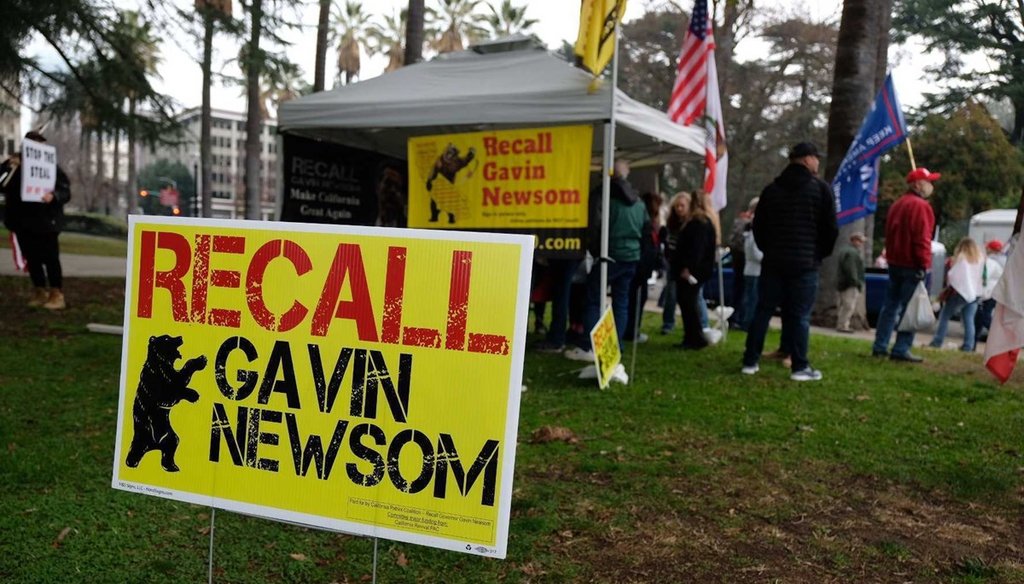
A sign promotes recalling Gov. Gavin Newsom at a Jan. 6 rally of Trump supporters at the California Capitol. Andrew Nixon / CapRadio
If Your Time is short
-
Gov. Gavin Newsom claimed the lead proponent of the recall against him supported ‘putting microchips into migrants.’ A since deleted Facebook post shows that is accurate. The recall leader said his comment wasn’t meant to be taken seriously.
-
Newsom also claimed recall leaders have ties to far-right militias and QAnon. An investigation by the Los Angeles Times along with additional evidence show there are some connections.
-
Political observers say Newsom’s statements do not apply to the vast majority of recall supporters.
California Gov. Gavin Newsom attacked the leaders of the recall campaign against him in a national TV blitz this week, alleging they’re anti-immigrant, connected to far right militias and embrace QAnon conspiracy theories.
The Democratic governor’s high-profile push back was his most forceful yet against the effort to remove him from office. It took place the same week organizers announced they had gathered more than two million signatures to qualify the recall for the ballot. Wednesday was the deadline to sign recall petitions, which must be verified by county election officials.
Newsom acknowledged the campaign has likely secured the 1.5 million valid signatures needed to hold a recall election later this year.
Newsom’s attacks over the airwaves were part of a larger effort this week by the governor and his Democratic allies in Congress and across the state to defend him and paint the leaders of the recall as extreme.
"The chief proponent of this, and forgive me this is just objective truth, the chief proponent of this recall effort supports putting microchips into migrants, into immigrants," Newsom claimed on ABC’s The View on Tuesday.
Sign up for PolitiFact texts
The governor followed that provocative claim with this:
"The other proponents, the top 10 proponents, the people that are behind this are members of the Three Percenters, the right wing militia group; the Proud Boys [who] supported the insurrection, [who] are folks who quite literally, enthusiastically support QAnon conspiracies. And so that’s the origin."
Newsom made similar allegations on MSNBC and CNN.
Many recall supporters rejected Newsom’s claims this week. They said the campaign was fueled not by extremists, but by Californians fed up with the governor's strict stay-at-home orders, which they blame for crippling business. Many are also frustrated that Newsom waited so long to push for students to return to schools in-person.
We wanted to know, did the governor get his facts right?
Did The Lead Recall Proponent Call For ‘Microchipping Migrants’?
There’s truth to this first provocative claim.
Orrin Heatlie, a retired Yolo County sheriff’s deputy, is the lead organizer of the recall campaign, according to its website.
In June 2019, he posted on Facebook: "Microchip all illegal immigrants. It works! Just ask Animal control! Process photograph, identify, and implant."
Heatlie told the Sacramento Bee his post was "hyperbole" and that his Facebook account was deleted. Dan Newman, the governor’s political campaign strategist, provided a screenshot of that post.
Randy Economy, senior advisor to the recall effort, said the campaign denounces "all types of violence and all types of extremism."
Economy said the campaign doesn’t do background checks on supporters, adding that any connections organizers have to militia groups or to anti-immigrant comments are not representative of the overall recall effort.
"The governor is trying to intimidate people and digging into their background to destroy their character," he said. "He’s trying to say we are all evil doers and bad people and crooks and criminals. That’s just what he does."
Asked about Heatlie’s Facebook post, Economy said, "I don’t think he was very serious about that."
Are The Recall Leaders Connected To Right Wing Militias?
There’s also evidence to support this claim.
In January, the Los Angeles Times published an investigation into the backgrounds of the recall leaders. The paper identified Aaron Bate, an El Dorado County recall organizer, as a Three Percenter.
Three Percenters are "anti-government extremists who are part of the militia movement," and have "a track record of criminal activity ranging from weapons violations to terrorist plots and attacks," according to the Anti-Defamation League website.
Bate disputed that characterization of the group, telling the Times it is not a militia or far-right.
Brian Levin, director of the Center for the Study of Hate and Extremism at Cal State San Bernardino, has described the Three Percenters as "an anti-government paramilitary group that promotes the idea that violence is legitimate to combat gun control laws."
He said Newsom’s statements could be viewed as "an overstatement, although there are certainly extremists, among the larger group of supporters of the recall."
Nathan Click, also a campaign strategist for Newsom, pointed to what he described as another tie between recall leaders and the Three Percenters. He said the group’s January newsletter praised work by Dan Seoane, who is listed as the author of the recall campaign’s press releases.
Economy described Seoane as a recall volunteer.
Do Recall Leaders Support QAnon Conspiracy Theories?
Earlier this year, the Facebook pages of the recall campaign repeated some QAnon conspiracy theories such as the baseless allegation that the presidential election was rigged, according to the Times investigation.
"Those pages have also likened the daily disruptions of COVID-19 to the Holocaust and the governor to Hitler, framing their struggles as if they were on par with the massacre of 6 million Jews," the article continued.
In late January, the recall campaign’s Instagram account shared a False claim that Facebook attempted to "shut down" the effort to remove Newsom when it stopped accepting advertisements for the recall. In reality, the social media company had stopped running political ads regardless of party affiliation last fall and did not single out the recall effort.
Kim Nalder, a Sacramento State professor who studies political psychology and disinformation, said the governor’s descriptions of the recall organizers as connected to militias and QAnon are accurate, to a point.
"I think it is pretty legitimate to tie the initial [recall[ effort to those groups," Nalder said. "I think it becomes less persuasive when you get to the current movement, which has expanded far beyond those groups."
Nalder said she’s examined images from the recall rallies and signature gathering events.
"You do see people wearing the 1776 gear, which is associated with the Three Percenters, the Betsy Ross flag, which is also associated with the Three Percenters," she added. "And Q[Anon] content, Q flags, as well."
While there’s evidence to support Newsom’s statements, some outlandish claims by Democrats about the recall have backfired on the party. In January, California Democratic Party Chairman Rusty Hicks described the effort as "the California coup."
A coup is the violent overthrow of a government. A recall is nothing like that. It’s a legal process that asks voters to decide whether to remove an elected official at the ballot box. We rated Hicks’ statement Pants on Fire.
Wesley Hussey, a Sacramento State political science professor who is tracking the recall, said he wasn’t aware of direct ties between the recall leaders and militias.
He expects the governor will, however, take whatever connections exist, no matter how large or small, and use them to his advantage.
"The governor’s going to try to tie the recall effort to the extreme right. It’s smart politically," Hussey said. "These groups are incredibly scary and dangerous."
Our Sources
Gov. Gavin Newsom, interview on ABC’s The View, March 16, 2021
Gov. Gavin Newsom, interview on MSNBC’s The ReidOut with Joy Reid, March 15, 2021.
Gov. Gavin Newsom, interview on CNN’s The Lead with Jake Tapper, March 16, 2021.
Randy Economy, senior advisor Newsom Recall campaign, phone interview March 17, 2021
Nathan Click and Dan Newman, Newsom campaign strategists, email interviews, March 16, 2021
Kim Nalder, political science professor, Sacramento State University, video interview, March 16, 2021.
Wesley Hussey, political science professor, Sacramento State University, video interview, March 16, 2021.
Brian Levin, director of the Center for the Study of Hate and Extremism, Cal State San Bernardino, email interview, March 16, 2021.
Orrin Heatlie, screenshot of Facebook post, June 2019.
Three Percenters, January 2020 newsletter
Los Angeles Times, Far-right movements including QAnon, virus skeptics linked to Newsom recall, Jan. 23, 2021
Sacramento Bee, Fact check: Is Gavin Newsom right that a recall leader suggested microchipping immigrants?, March 16, 2021
PolitiFact California, No, Facebook Didn’t Try To ‘Shut Down’ Gavin Newsom Recall Effort, Feb. 2, 2021
PolitiFact California, No, Efforts To Recall California Gov. Newsom Are Not ‘A Coup’, Jan. 13, 2021
Newsweek, Recall Gavin Newsom Movement Includes Proud Boys Members and Man Who Called BLM Black KKK, Jan. 28, 2021
Politico, French Laundry snafu reignites longshot Newsom recall drive, Nov. 23, 2021
Politico, California Democrats try to tie Newsom recall movement to Capitol attack, Jan. 13, 2021
